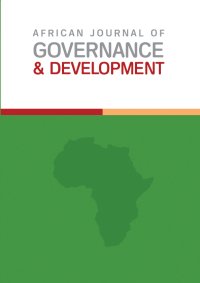Can National Development Thrive Without Local Government’s Constructive Input? Outlook of Nigeria, with Lessons for Africa
Main Article Content
Abstract
Satisfactory nationwide development without constructive local governments’ input cannot manifest. Effectual local administrations are essential to discourage the production of deleterious interaction-effect of development. This paper evaluates published articles
between 2010 and 2020 in the Nigerian context to comprehend what undermines impactful local governments’ participation in national development to pinpoint lessons for African nations. It addresses how abject local governments in place do not support their
positive involvement in national development. The intrinsic purpose of local government according to the classical theory’s logic is the paper’s theoretical foundation. Deriving from a literature review methodology, the paper proffers reform agendas to enhance the
optimal efficacy of local administrations in the intergovernmental relations schemes for development in Africa from literature insights of the Nigerian situation. The analysis resonates the three thematic codes evolved from the classical theory’s justification of local
government: optimization of local governance, enhancement of local democracy, and facilitation of efficient local services delivery. It observes that implementation of ineffectual decentralization policies and lack of local autonomy are critical factors undermining optimum development in Nigeria, viz African countries. It concludes that effective decentralisation and local autonomy accentuates the centrality of local government in the national development trajectory.
Article Details

This work is licensed under a Creative Commons Attribution-NonCommercial-NoDerivatives 4.0 International License.
